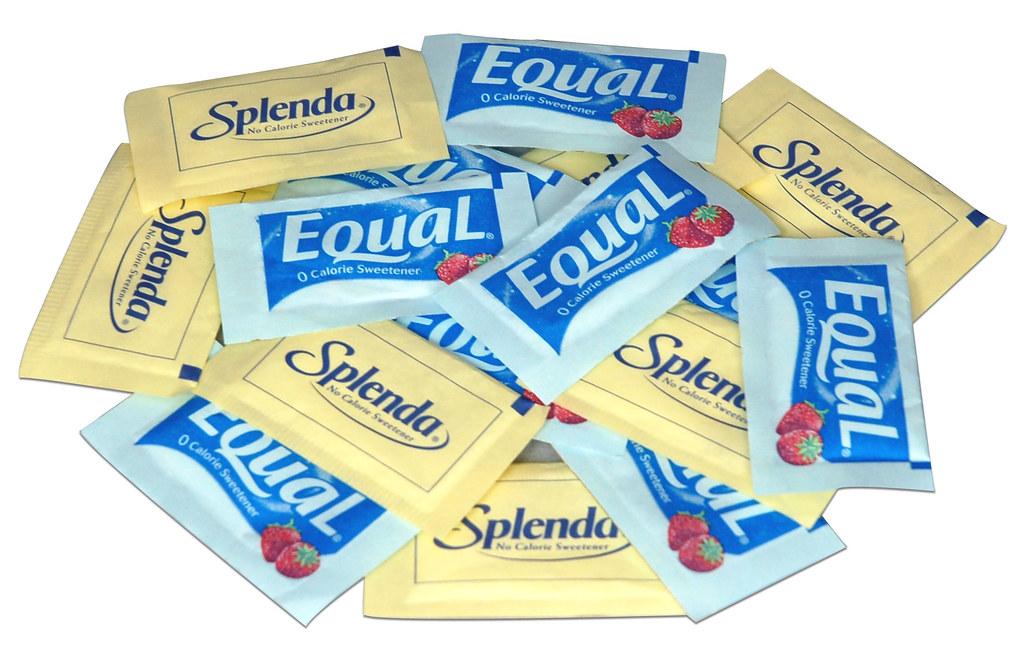Business for Impact, an initiative in the Georgetown University McDonough School of Business (MSB) that seeks to promote how businesses can be a force for the common good, published a new report in October advocating the use of artificial sweeteners as a sugar replacement to lower calorie intake.
The report, titled “Moving Towards Healthier Eating Habits: Why Low- and No-Calorie Sweeteners Play a Critical Role,” was authored by Hank Cardello, executive director of the Leadership Solutions for Health and Prosperity program at Business for Impact. In the paper, Cardello evaluated the safety and efficacy of low- and no-calorie sweeteners (LNCS), such as aspartame and sucralose, based on existing studies and meta-analyses.
Cardello concluded that policy decisions, dietary guidelines and food industry actions should promote the increased use of sugar substitutes.
“Our goal was — in one place — to have a single comprehensive assessment of one, ‘do these things really work?’ and two, ‘are they really safe?’” Cardello told The Hoya. “We did find out that one, they are effective and two, that they really are safe.”
Cardello’s report was funded by the Calorie Control Council, an association of manufacturers and suppliers of low- and reduced-calorie foods and beverages, including The Coca Cola Company and Keurig Dr Pepper. The paper joins a growing body of research that supports the use of LNCS to improve public health and reduce obesity, and the Food and Drug Administration (FDA) continues to advocate aspartame’s safety based on decades of scientific evidence.
The new report from the MSB follows a statement released by the World Health Organization (WHO) and International Agency for Research on Cancer (IARC) in July. In the statement, the agencies flagged aspartame as a possible carcinogen, or cancer-causing substance.
Dr. Thomas Sherman, professor of pharmacology and physiology at Georgetown University Medical Center, said that those warnings could potentially reflect flawed research, in part because of the use of observational studies. Sherman encouraged the use of clinical trials as a more reliable source of data in evaluating the long-term effects of artificial sweeteners.
“Observational data is more heavily influenced by reverse causality and bias,” Sherman told the Hoya. “When you look at any clinical trial data, not only do you never see harm, but you sometimes see benefits: sometimes weight loss, sometimes glycemic control.”
Cardello said that research on artificial sweeteners should prioritize causality, determined by randomized control studies, rather than correlation, determined by observational studies, between LNCS and human health.
“With observational studies, you can make connections but they don’t deal with causality,” Cardello said. “In the randomized studies, you can actually show cause. What that does is that you get some really sophisticated studies giving you insights, rather than you run out and test twenty gerbils and it tells you that something is poison.”
Aspartame, as well as other sweeteners, has been targeted by the FDA because of its label as artificial, according to Cardello. Aspartame is composed of two modified amino acids that have been bonded in a way that would not be found outside of a lab.
To those who have raised concerns about the artificial aspect of these sweeteners, Cardello suggests that generalizing about artificial foods leads to ungrounded assumptions that may confuse the public.
“Just because something is organic doesn’t mean it’s safe,” Cardello said. “There are artificial products that are a problem but you have to look at them individually. It’s wrong to paint something across the board.”

Jaclyn London, a registered dietitian and media spokesperson on weight management, echoed Cardello’s findings at an Oct. 19 panel discussion hosted by the MSB about the new paper. London said that researchers in the field should look at how to incorporate these artificial sweeteners into the current food market
“I think where the nuance lies is in what types of products should these low- and no-calorie sweeteners be used, in what sorts of settings should a person be choosing products that have low- and no-calorie sweeteners, and in what ways can we use this evidence to help inform data that comes from future consumers,” London said at the event.
Moving forward, Cardello seeks to continue to further disseminate the results of the new report to better inform the general population how these artificial sweeteners may positively affect their health.
Cardello said students and consumers should concern themselves less with the components of these artificial sweeteners and to instead focus on the overarching goal of their use: to ameliorate the obesity epidemic.
“The big issue is that we have an obesity epidemic,” Cardello said. “The challenge with obesity is that it’s a portal to type 2 diabetes, stroke and heart disease and certain types of cancer. What can we do to help ameliorate that issue? How can we help consumers fight that?”








